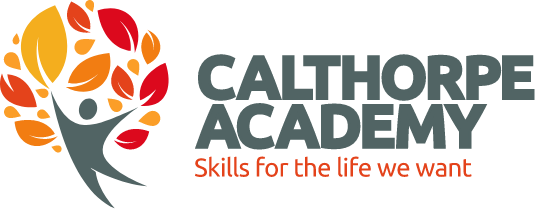Oakland School

Welcome to Oakland School, part of Calthorpe Academy
As Head of Centre, it is my pleasure to welcome you to Oakland School, part of Calthorpe Academy. Opened in February 2025, Oakland School provides an excellent learning environment with high-quality facilities specifically designed to meet the needs of our learners.
Oakland School caters to 48 autistic learners across six classes, covering Key Stage Two and Key Stage Three. Classes are organised by age group while also considering individual learner needs. Our school features a large shared indoor learning space connected to classrooms, along with two outdoor areas designed to promote learning and independence.
Situated next to Oakland Recreation Ground and surrounded by shops and community facilities, our location offers excellent opportunities for learners to engage with their community while developing the "Skills for the Life We Want."
Our highly trained staff specialise in supporting profoundly autistic learners, implementing effective strategies to foster development in all key areas of life. This includes the use of the Picture Exchange Communication System (PECS), Makaton, and Intensive Interaction to enhance pupils’ language and communication skills.
Oakland School is specifically designed for learners with a diagnosis of ASD. Our learners follow the "Foundation for Life" curriculum, a personalised approach that respects each individual’s pace while focusing on key developmental areas. We utilise a range of evidence-based strategies to ensure that skills and knowledge are transferable across different environments and are retained over time. The curriculum places particular emphasis on communication and social skills, emotional regulation, and daily living skills, ensuring that every learner receives the support they need to thrive in line with their Educational, Health & Care Plans, as well as their personal dreams and aspirations.

Antonio Ferraz
Head of Centre
Oakland School
10 Boughton Road
Birmingham
B25 8AJ
The School Day
| 09.00–09.30 | My Self-Regulation |
| 09.30–10.15 | Lesson 1 |
| 10.15–11.00 | Lesson 2 |
| 11.00–11.15 | Break time |
| 11.15–12.00 | Lesson 3 |
| 12.00–13.00 | Dinner time |
| 13.00–13.45 | Lesson 4 |
| 13.45-14.30 | Lesson 5 |
| 14.30-15.00 | Lesson 6 |
| 15.00-15.20 | My Self-Regulation |
Foundations for Life Strands
| Communication and interaction (Literacy) | Problem-solving and thinking skills (Numeracy) | Emotional Regulation and Relationship |
|---|---|---|
|
Interaction and relationships
Making requests
Listening and understanding
Labelling skills
|
Problem-solving skills
|
Understanding and expressing emotions
|
| Routines and engagement | Healthy Living | Independence and community participation |
Learning through play/understanding and following rules and expectations
|
Personal Skills
|
Independent living
Personal safety
|
Lunch at Oakland School
Week One
|
MONDAY |
TUESDAY |
WEDNESDAY |
THURSDAY |
FRIDAY |
|
MAIN COURSES |
||||
|
Chicken Mini Fillets |
Sausage and Yorkshire Pudding |
Lamb Kebabs |
Marinated Chicken Breast |
Battered Fish |
|
Fish Fingers |
Vegetable Samosa | Fish Fingers |
Cheese and Onion Pasties |
Pizza |
|
Omlette |
Fish Cake |
Omlette |
Omlette |
Fish Cake |
|
Baked Potato Bar |
Baked Potato Bar | Baked Potato Bar | Baked Potato Bar | Baked Potato Bar |
|
Salad / Packed Bar |
Salad / Packed Bar | Salad / Packed Bar | Salad / Packed Bar | Salad / Packed Bar |
|
POTATOES AND VEGETABLES |
||||
|
Beans |
Beans |
Beans |
Beans |
Beans |
|
Fresh Vegetables |
Fresh Vegetables |
Fresh Vegetables |
Fresh Vegetables |
Fresh Vegetables |
|
Diced Herbed Potatoes |
Potato Wedges |
Chips (Oven) |
Diced Herbed Potatoes |
Chips (Oven) |
| Mashed Potato | Mashed Potato | Mashed Potato | Mashed Potato | Mashed Potato |
|
SWEETS |
||||
| Fresh Fruit | Fresh Fruit | Fresh Fruit | Fresh Fruit | Fresh Fruit |
|
Yoghurts |
Yoghurts | Yoghurts | Yoghurts | Yoghurts |
|
Jelly |
Cheese and Biscuits |
Chocolate Bars |
Cookies - Oreos |
Cake and Custard |
Week Two
|
MONDAY |
TUESDAY |
WEDNESDAY |
THURSDAY |
FRIDAY |
|
MAIN COURSES |
||||
|
Lamb Kebabs |
Chicken Burger |
Fish Fingers |
Beef Burger |
Battered Fish |
|
Fish Fingers |
Cheese and Onion Pasties | Vegetable Samosas |
Vegetable Spring Roll |
Pizza |
|
Omlette |
Fish Cake |
Omlette |
Fish Cake |
Omlette |
|
Baked Potato Bar |
Baked Potato Bar | Baked Potato Bar | Baked Potato Bar | Baked Potato Bar |
|
Salad / Packed Bar |
Salad / Packed Bar | Salad / Packed Bar | Salad / Packed Bar | Salad / Packed Bar |
|
POTATOES AND VEGETABLES |
||||
|
Beans |
Beans |
Beans |
Beans |
Beans |
|
Fresh Vegetables |
Fresh Vegetables |
Fresh Vegetables |
Fresh Vegetables |
Fresh Vegetables |
|
Diced Herbed Potatoes |
Potato Wedges |
Chips (Oven) |
Diced Herbed Potatoes |
Chips (Oven) |
| Mashed Potato | Mashed Potato | Mashed Potato | Mashed Potato | Mashed Potato |
|
SWEETS |
||||
| Fresh Fruit | Fresh Fruit | Fresh Fruit | Fresh Fruit | Fresh Fruit |
|
Yoghurts |
Yoghurts | Yoghurts | Yoghurts | Yoghurts |
|
Jelly |
Cheese and Biscuits |
Chocolate Bars |
Cookies - Oreos |
Cake and Custard |
Week Three
|
MONDAY |
TUESDAY |
WEDNESDAY |
THURSDAY |
FRIDAY |
|
MAIN COURSES |
||||
|
Jerk Chicken and White Rice |
Lamb Kebabs |
Sausage and Yorkshire Pudding |
Marinated Chicken Breast |
Battered Fish |
|
Fish Fingers |
Macaroni Cheese | Fish Fingers |
Vegetable Samosas |
Pizza |
|
Omlette |
Fish Cake |
Omlette |
Fish Cake |
Omlette |
|
Baked Potato Bar |
Baked Potato Bar | Baked Potato Bar | Baked Potato Bar | Baked Potato Bar |
|
Salad / Packed Bar |
Salad / Packed Bar | Salad / Packed Bar | Salad / Packed Bar | Salad / Packed Bar |
|
POTATOES AND VEGETABLES |
||||
|
Beans |
Beans |
Beans |
Beans |
Beans |
|
Fresh Vegetables |
Fresh Vegetables |
Fresh Vegetables |
Fresh Vegetables |
Fresh Vegetables |
|
Diced Herbed Potatoes |
Potato Wedges |
Chips (Oven) |
Diced Herbed Potatoes |
Chips (Oven) |
| Mashed Potato | Mashed Potato | Mashed Potato | Mashed Potato | Mashed Potato |
|
SWEETS |
||||
| Fresh Fruit | Fresh Fruit | Fresh Fruit | Fresh Fruit | Fresh Fruit |
|
Yoghurts |
Yoghurts | Yoghurts | Yoghurts | Yoghurts |
|
Jelly |
Cheese and Biscuits |
Chocolate Bars |
Cookies - Oreos |
Cake and Custard |
Menu Rotation
|
Week Commencing |
Menu Week |
Week Commencing |
Menu Week |
Week Commencing |
Menu Week |
|
01/09/25 |
Week One |
08/09/25 |
Week Two |
15/09/25 |
Week Three |
|
22/09/25 |
Week One |
29/09/25 |
Week Two |
06/10/25 |
Week Three |
|
13/10/25 |
Week One |
20/10/25 |
Week Two |
27/10/25 |
Holiday |
|
03/11/25 |
Week Three |
10/11/25 |
Week One |
17/11/25 |
Week Two |
|
24/11/25 |
Week Three |
01/12/25 |
Week One |
08/12/25 |
Week Two |
|
15/12/25 |
Week Three |
22/12/25 |
Holiday |
29/12/25 |
Holiday |
|
05/01/26 |
Week One |
12/01/26 |
Week Two |
19/01/26 |
Week Three |
|
26/01/26 |
Week One |
02/02/26 |
Week Two |
09/02/26 |
Week Three |
|
16/02/26 |
Holiday |
23/02/26 |
Week One |
02/03/26 |
Week Two |
|
09/03/26 |
Week Three |
16/03/26 |
Week One |
23/03/26 |
Week Two |
|
30/03/26 |
Holiday |
06/04/26 |
Holiday |
13/04/26 |
Week Three |
|
20/04/26 |
Week One |
27/04/26 |
Week Two |
04/05/26 |
Week Three |
|
11/05/26 |
Week One |
18/05/26 |
Week Two |
25/05/26 |
Holiday |
|
01/06/26 |
Week Three |
08/06/26 |
Week One |
15/06/26 |
Week Two |
|
22/06/26 |
Week Three |
29/06/26 |
Week One |
06/07/26 |
Week Two |
|
13/07/26 |
Week Three |










